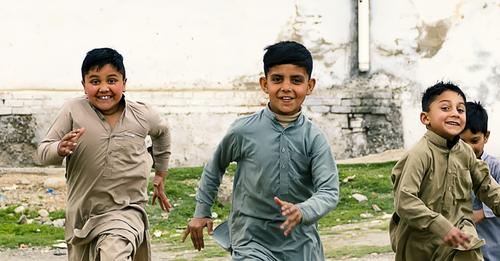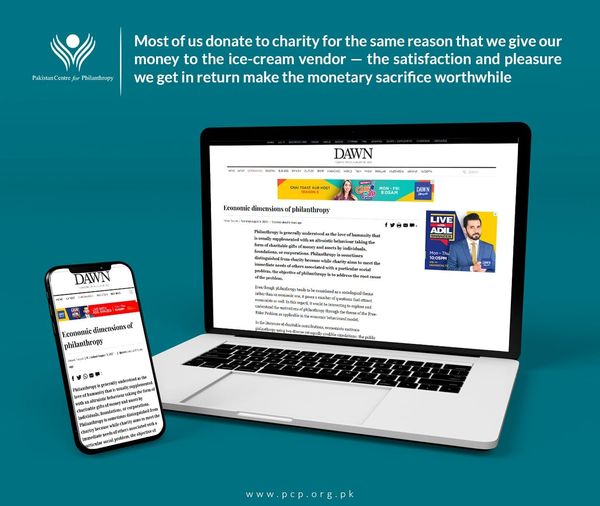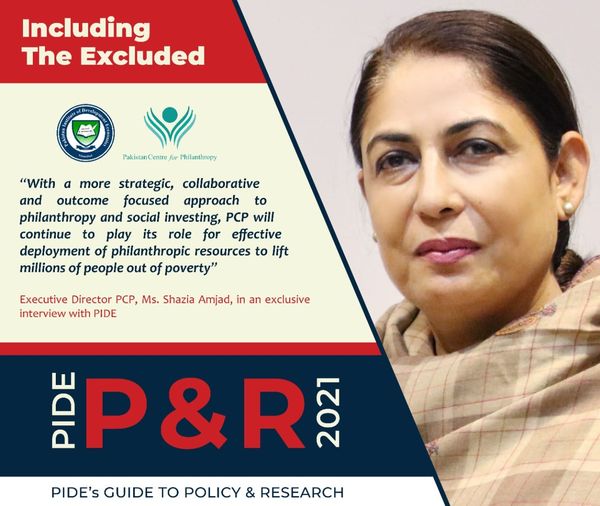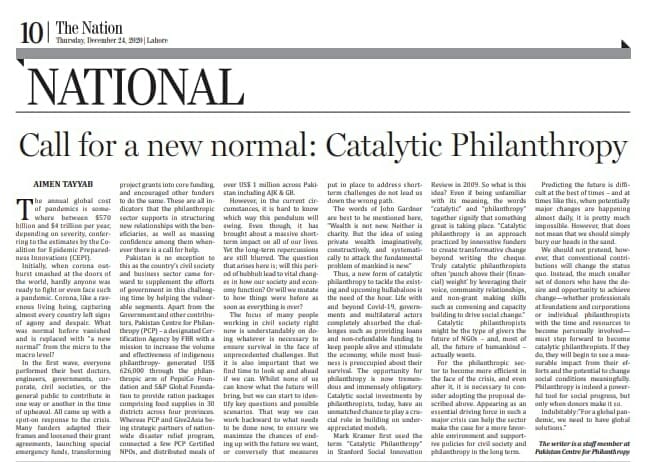PCP Blogs

The next generation of philanthropy
Pakistan has the seventh-largest diaspora community, scattered across 140 countries. Studies claim that when diaspora populations have close bonds with their country of origin, they contribute to the economic, cultural and social development of their home countries. In the context of Pakistan, diaspora studies and diaspora philanthropy have limited research.…Read More
Diaspora philanthropy: An untapped potential for Pakistan
Philanthropy is best understood as actions of voluntary giving that serve and benefit others without expecting any return or profit. In the words of John D. Rockefeller, “think of giving not only as a duty but as a privilege”. Donating to an extensive range of causes, and their impact on international…Read More
Economic dimensions of philanthropy
Philanthropy is generally understood as the love of humanity that is usually supplemented with an altruistic behaviour taking the form of charitable gifts of money and assets by individuals, foundations, or corporations. Philanthropy is sometimes distinguished from charity because while charity aims to meet the immediate needs of others associated…Read More
PIDE interviewed Executive Director PCP, Ms. Shazia Amjad
Pakistan Institute of Development Economics-PIDE interviewed Executive Director PCP, Ms. Shazia Amjad, to understand #Philanthropy as a tool to bring certain welfare results in the life of poor and marginalized segments, and the role of #NGOs in promoting philanthropy in #Pakistan.To learn more, read the entire interview at https://bit.ly/3dBgJ9w
Call for a new normal: Catalytic Philanthropy
The annual global cost of pandemics is somewhere between $570 billion and $4 trillion per year, depending on severity, conferring to the estimates by the Coalition for Epidemic Preparedness Innovations (CEPI). Initially, when corona outburst smashed at the doors of the world, hardly anyone was ready to fight or even…Read More





